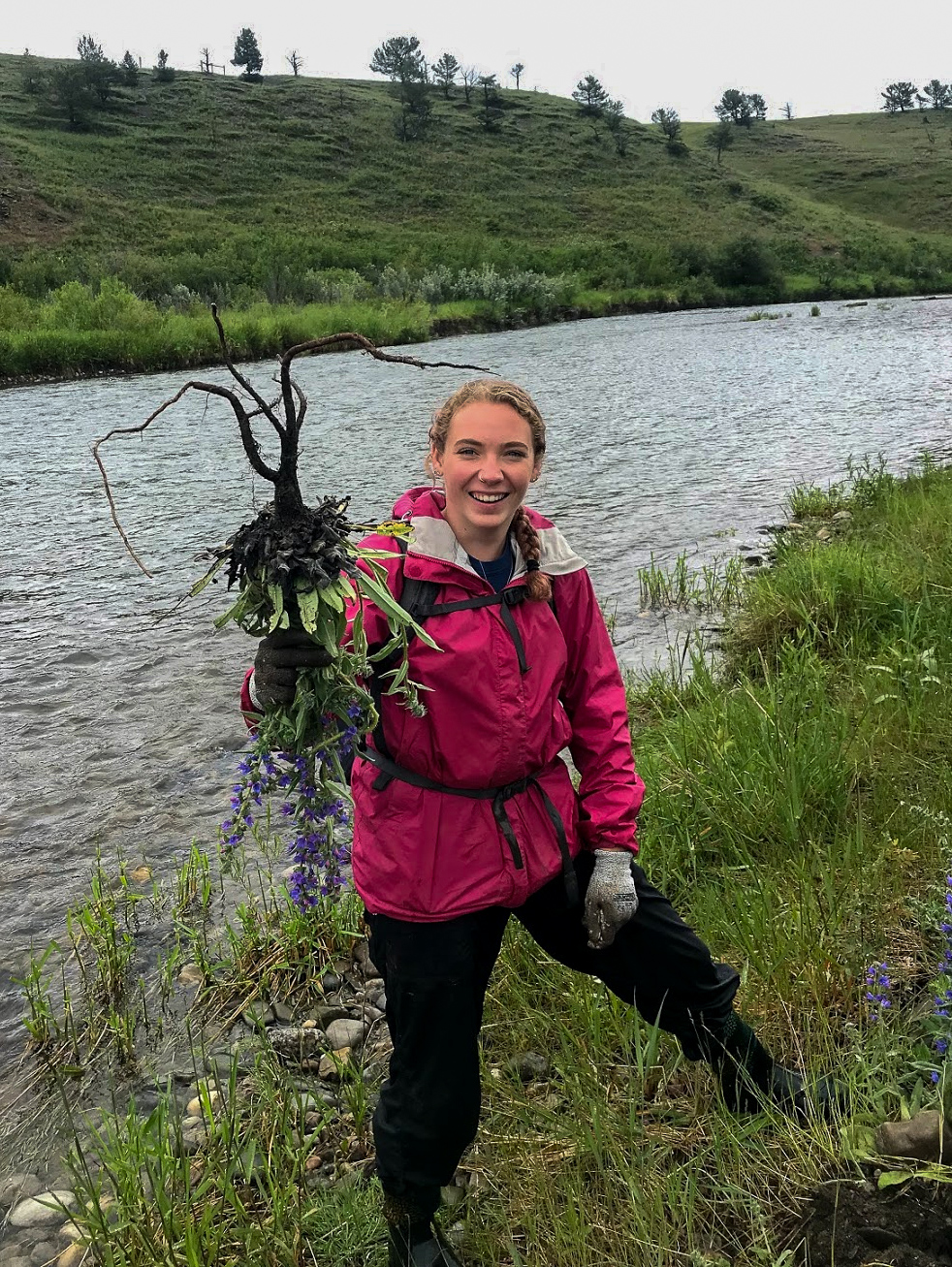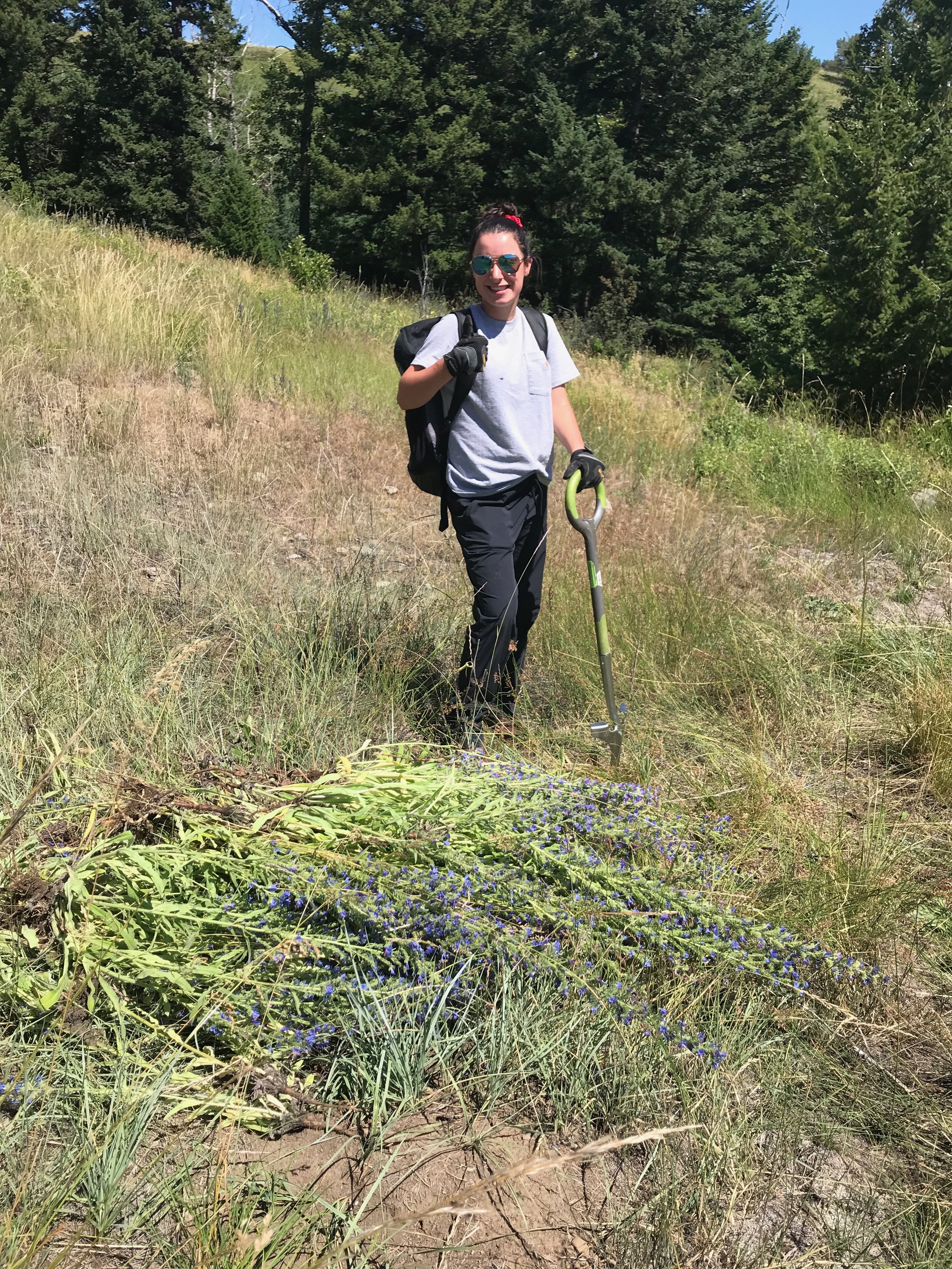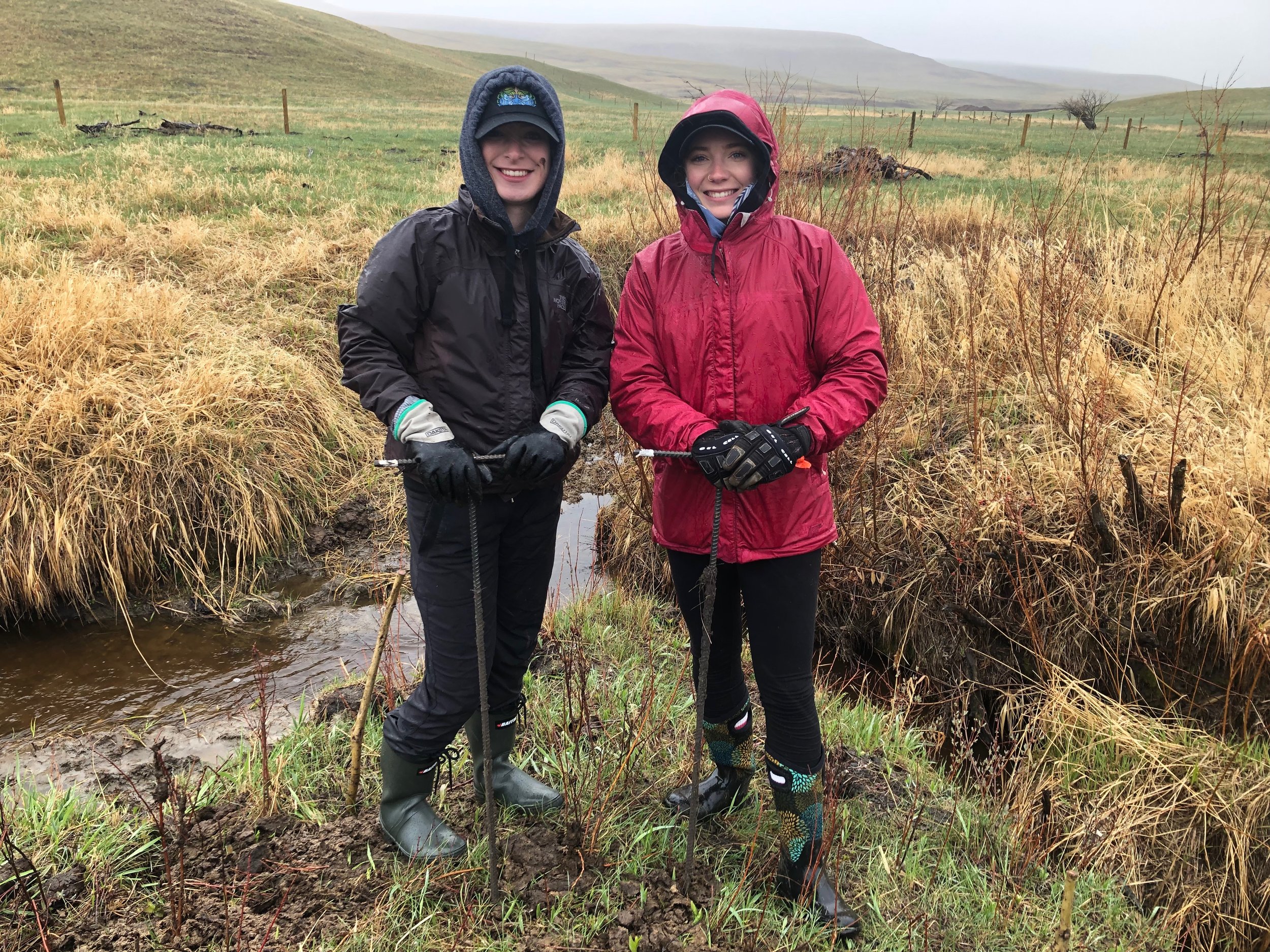Editor's Note: With a successful and busy summer come to an end, the 2019 Outreach Assistants have wrapped things up. The Saskatchewan Sisters’ first summer working in Alberta was filled with many accomplishments: breaking OWC records, having new experiences, and making amazing memories.
This summer, we travelled thousands of kilometers throughout the watershed as we discovered the beautiful and sometimes unknown places within the Oldman. Not being from the area, we got a chance we might not have otherwise gotten: to explore often-unseen corners Southern Alberta. We learned a lot about interesting sites to visit from long-time residents of the watershed, and by the end of summer, we were able to pay it forward and help others find new places to explore.
Some of our favourite people to interact with were other volunteers and organizations at events. Working with the Helen Schuler Nature Center, the Castle-Crown Wilderness Coalition, and the Nature Conservancy of Canada, as well as the volunteers that devoted their time to help better the environment, helped us make connections and have fun while doing worthwhile (but sometimes frustrating) tasks. We can be a bit stubborn and like to think we can do everything by ourselves, but we needed all the help we could get from the other volunteers and organizations!
The biggest issue within the watershed we tackled this summer was invasive weeds. Almost every week throughout the summer, we attended at least one weed pull in areas including Lethbridge, Castle Mountain Provincial Park, Waterton Lakes National Park, the Crowsnest Pass, or near Claresholm. Some people might see weeds in their garden or yard and groan, say they will worry about it later, and leave them be. But we did not have that attitude this summer and pulled 162 bags of weeds. Although invasive weeds seem like they are sometimes a never-ending battle, we never gave up and always gave it our all.
We weren’t only about weeds this summer: we also attended 2 garbage cleanups, helped install 1 bridge, removed 3 km of fence that was interfering with wildlife movement, painted yellow fish on storm drains, and planted about 500 willows along a streambank. Combined with our blogs, “Weekly Runoff” Facebook posts, “Weedy Wednesday” educational videos, and hundreds of photos, we are proud of everything we accomplished this summer!
Willow staking. Believe it or not, working in the rain is fun!
Sydney using a post pounder. Work isn’t always easy!
Working for the OWC, we learned so much about the environment and even more about ourselves—including our limitations. Before starting at the OWC, we had worked mostly independently, so we had to learn to work with each other all the time for many days in a row. Luckily, we caught on quickly and set up a good system of switching tasks and roles to keep things running smoothly. We also learned that although we both prefer fieldwork over office days, sometimes we have to allow ourselves to take a step back and not only do field work. Weed pulls are a lot of work and can be strenuous on the body, especially in the heat, and sometimes even us hard-working, small-town girls need a break.
This summer we developed and improved a variety of skills, like writing and communicating with a variety of audiences including OWC staff and board members, professionals and students, and parents and children. We talked to over 2000 people about the watershed this summer! We also learned that if someone doesn’t seem interested in what we have to say, it is better to just listen and try to learn. Usually, we could break the ice by simply asking “Where are you from?” or “What brings you out here today?”. In reality, not everyone wants to know every detail about the environment or watershed; they just want to know how changes and human action affects them.
We also quickly learned how to make the best of situations. If we’d driven out to the backcountry to set up an education table but didn’t find anyone to talk to, we’d make better use of our time by trying a different location, or working on a different objective, such as filming a “Weedy Wednesday” video, or scouting potential restoration sites for the future.
What is next for the 2019 Outreach Assistants? Now that work is finished, we will be hitting the books and working to complete our education at Lethbridge College. During those late nights when we’re cramming to finish typing an essay, all the things we have learned about grammar will definitely be put to good use! All of our new communication skills will definitely come in handy when working with our peers and professors in school, and for the rest of our lives as well.











